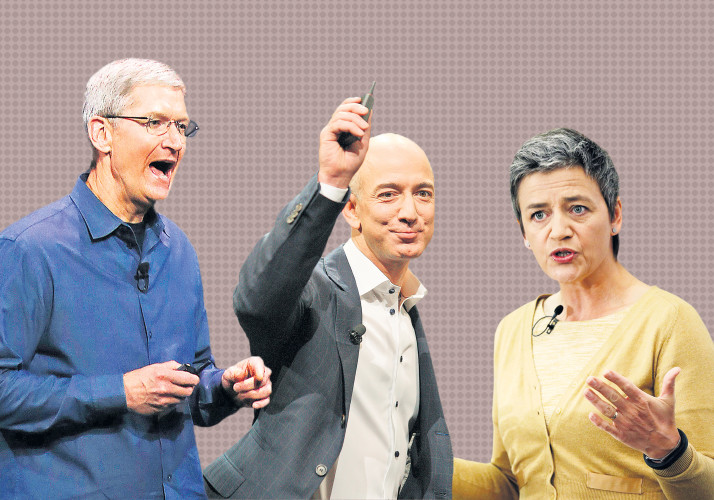-
Tips for becoming a good boxer - November 6, 2020
-
7 expert tips for making your hens night a memorable one - November 6, 2020
-
5 reasons to host your Christmas party on a cruise boat - November 6, 2020
-
What to do when you’re charged with a crime - November 6, 2020
-
Should you get one or multiple dogs? Here’s all you need to know - November 3, 2020
-
A Guide: How to Build Your Very Own Magic Mirror - February 14, 2019
-
Our Top Inspirational Baseball Stars - November 24, 2018
-
Five Tech Tools That Will Help You Turn Your Blog into a Business - November 24, 2018
-
How to Indulge on Vacation without Expanding Your Waist - November 9, 2018
-
5 Strategies for Businesses to Appeal to Today’s Increasingly Mobile-Crazed Customers - November 9, 2018
Google rejects EU anti-trust allegations as flawed
BRUSSELS-Google Inc. on Thursday rebuffed the European Union’s demand that it change the way it ranks online comparison-shopping services in its search results, setting up a potentially drawn-out legal battle between the search giant and a regulator empowered to levy billions of euros in fines.
Advertisement
“We’ve taken seriously the concerns in the European Commission’s Statement of Objections (SO) that our innovations are anti-competitive”, said Walker.
“We believe that the SO’s preliminary conclusions are wrong as a matter of fact, law, and economics”, Google said on Thursday. “On the contrary, showing ads based on structured data provided by merchants demonstrably improves ad quality and makes it easier for consumers to find what they’re looking for”, Kent Walker, Google’s SVP & General Counsel wrote in a blog post. Google, with its own data, found that “product search is robustly competitive”.
After three extensions, Google was given until August 31 to provide its response, which it did in a 150-page legal document that carefully details the reasons for standing its ground.
Search engine says companies like Amazon and eBay show competition in online shopping is strong.
The EU’s Statement of Objections against Google accused the company of using a monopoly on search – it owns around a 90 percent share of the market in Europe – to unfairly trounce competitors and ultimately harm consumers. (Today’s statement does not comment on that investigation.) As The New York Times reports today, a decision on the search-related charges isn’t expected until closer to the end of year.
Advertisement
These critics roundly rejected Google’s arguments, defending Vestager. But the SO doesn’t back up that claim, doesn’t counter the significant benefits to consumers and advertisers, and doesn’t provide a clear legal theory to connect its claims with its proposed remedy.




























